Art History alumna Iakoiehwáhtha (Iako) Patton ’23 is a Rhodes Scholar currently studying at the University of Oxford. A member of the Kanien’kehá:ka First Nations community in Quebec, she was the first Indigenous woman in Canada to be awarded a Rhodes Scholarship. We caught up with her in January 2025 to hear about her time in England, her reflections on U of T, and her plans for the future.
You were awarded the Rhodes Scholarship in 2023. I imagine a lot has happened since then. Catch us up.
Since then, I’ve graduated with my Master’s in History of Art. It went by super fast. It feels like just yesterday that I was starting my previous course! Now, I'm doing another Master's in Visual, Material and Museum Anthropology.
During my MA in Art History, I worked under the supervision of Geraldine Johnson. I’d read her work on Renaissance female patrons for my undergrad, so it was really cool to finally meet her and have her supervise me for my thesis.
After my program, I submitted my dissertation on funerary commissions by female French queens. I did an internship in Florence with the Medici Archive Project, researching Catherine de Medici and her background – the subject of one of my previous papers, which will hopefully be published soon.
How did your studies in Art History at U of T prepare you for your graduate work?
I think it set me up perfectly, both during my time at Vic and within the Art History department. I felt really supported at U of T and I miss the community there a lot. Everybody in the Art History department was so supportive of my research and my interest in such specific and niche topics within art history, whether that was funerary monuments or the Northern Renaissance. To have that support system from professors who were already doing research and working within my area was really unique.
What was the most challenging aspect of the MA or the transition to the MA?
Oxford’s interesting and weird in that it can be very insular. You’re doing your own research and you're not really talking to a lot of people within the department. That can feel very isolating. That was the most challenging thing: coming from U of T’s course-based structure, where you saw people every single day, to Oxford, where you really have to put in the effort to create a similar environment. If you don't make the effort to go out and make friends and build that community yourself, it can feel very hard. There’s so much community that is built over the four years of an undergraduate degree. To do all that work in one year—it’s a lot.
What was the most exciting or enriching experience of the program?
I’d never studied in England before. It was really, really fun to be in a city with so much art and architectural history. I was so close to continental Europe for my research. I could just hop over to Paris whenever I felt like I needed to get more photos for my dissertation or see something. Seeing the art and architecture in real life to actually understand the scale, provides so much more than just seeing it on a screen or seeing it in a classroom. Then at Oxford, I really loved that all the lectures were open lectures. A lot of students don't know this, but you can attend any lecture you want. So if I wanted to go to a lecture on astrophysics, I could do that!
What’s next?
When I got this scholarship, it actually wasn’t in the plans! I had my sights on a PhD at Yale, Harvard, or maybe continuing at U of T. Applying to the Rhodes was kind of a “well, let's see what happens, I'm probably not going to get it” gesture. Then I got it and I was like, oh, okay, well, I guess that's the next two or three years of my life. I still want to pursue my PhD and I still have research that I do want to do so I plan to apply for PhDs. For next year, I'm hoping that I can stay within Europe, preferably France because that's where my research is. I would love to get my foot in the door of museum work too.


